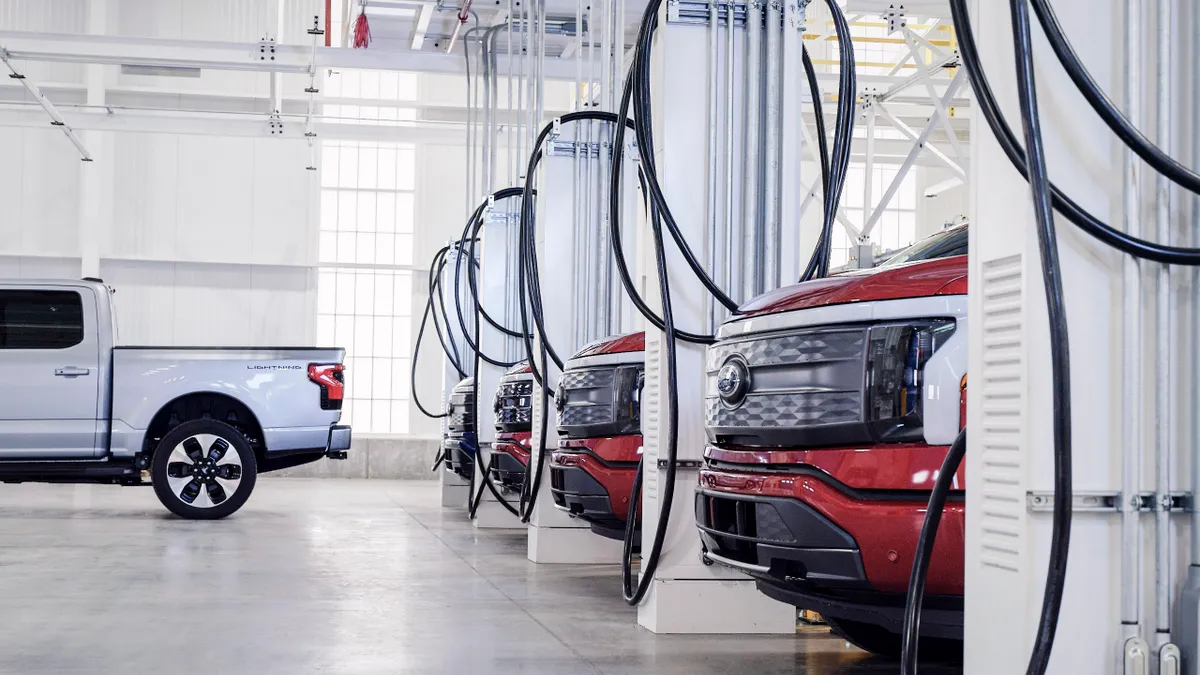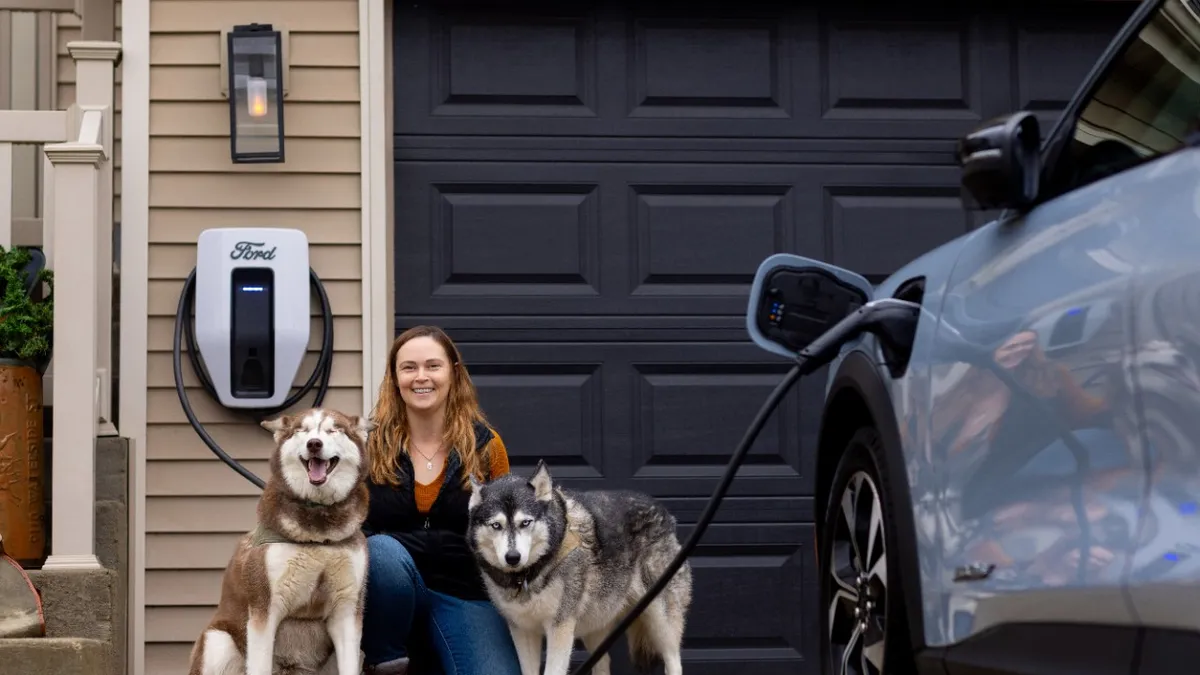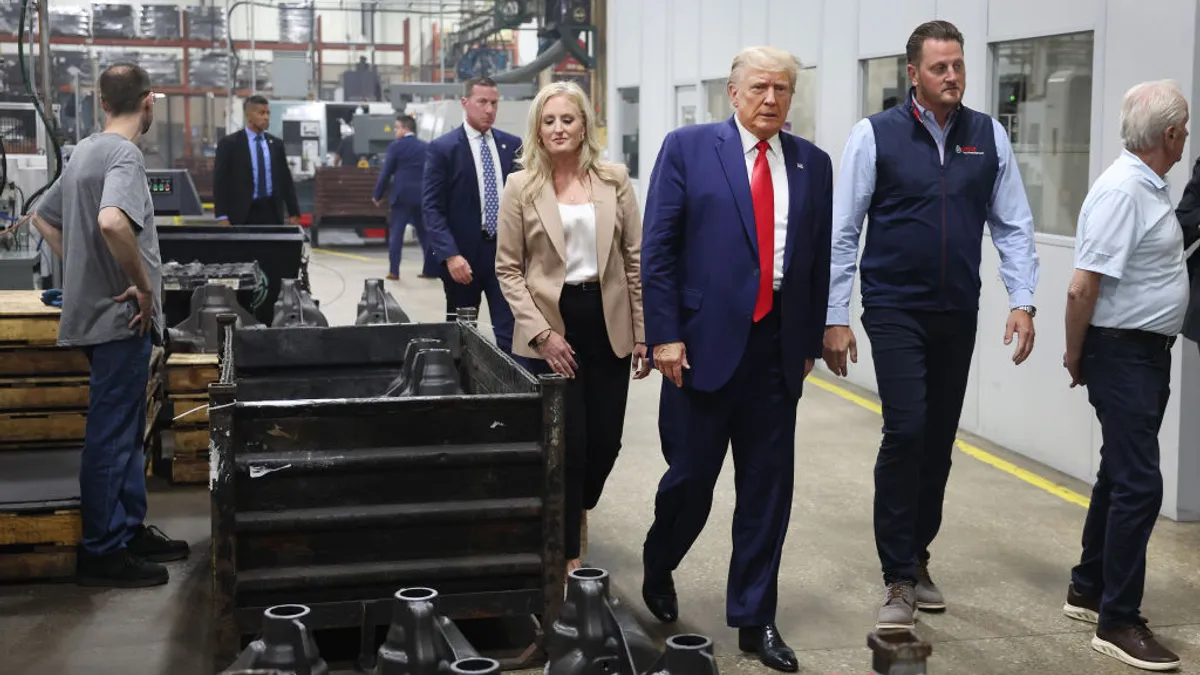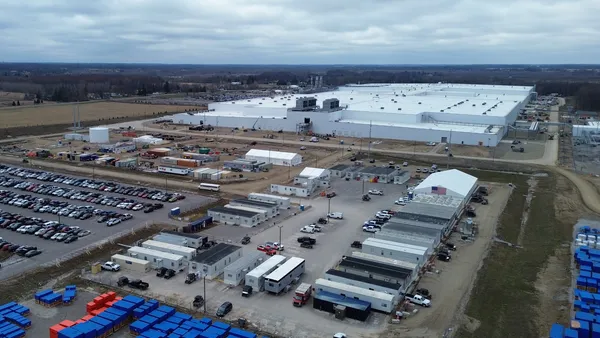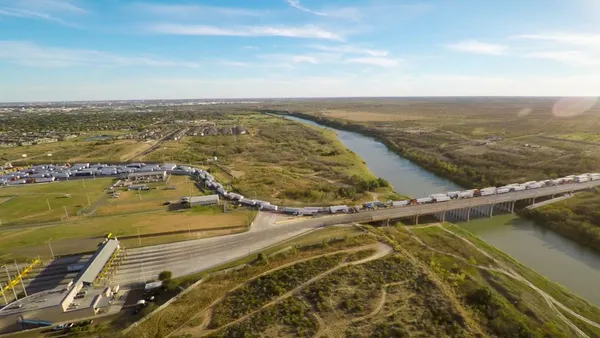Dive Brief:
- Ford Motor Co. announced Wednesday it will no longer produce an electric three-row SUV in order to cut costs amid weakening EV demand and pricing pressure, according to a press release. It’s also delaying the launch of its next-generation electric truck until the second half of 2027.
- Instead, the automaker will pursue hybrid technologies for its next three-row SUVs, resulting in a $400 million write-down for manufacturing assets. The decision may also result in additional expenses and cash expenditures of up to $1.5 billion.
- “With pricing and margin compression, we’ve made the decision to adjust our product and technology roadmap and industrial footprint to meet our goal of reaching positive EBIT within the first 12 months of launch for all new models,” said John Lawler, Ford vice chair and CFO, in the release.
Dive Insight:
By switching from pure EVs to hybrids, Ford anticipates that its capital expenditures for pure EVs will decrease from 40% to 30%. The company previously retimed the launch of the all-electric SUV in April.
Now, Ford will turn its electrification efforts toward a “digitally advanced” commercial van, which will be assembled at the company’s Ohio Assembly Plant in 2026. Then, as its skunkworks team debuts its new, lower-cost EV platform, the automaker plans to launch a mid-sized electric pickup truck in 2027.
“We recruited the most technically skilled and creative professionals from inside and outside Ford to drive a radical change in how we develop an electric vehicle,” Ford CEO Jim Farley said in the release. “The work of this highly talented team has evolved into a critical enabler of our electric vehicle strategy.”
Farley also cited the company’s accelerated battery production efforts, saying “an affordable electric vehicle starts with an affordable battery.”
The BlueOval SK joint venture’s Kentucky 1 plant will manufacture cells for Ford’s E-Transit van with enhanced range and F-150 Lightning beginning mid-2025 — earlier than previously anticipated. Meanwhile, BlueOval SK at BlueOval City in Tennessee will produce cells starting in late 2025 for the automaker’s new electric commercial van.
Ford’s electric vehicle division, Model e, lost $1.1 billion in Q2, nearly canceling out $1.2 billion in Q2 profit from its Blue division, which represents internal combustion engine vehicles. Ford Pro, which includes Super Duty trucks and Transit commercial vans, reported $2.6 billion in profit for the quarter, up 7% year over year.
Ford said it will provide an update on its electrification, technology, profitability and capital requirements in the first half of 2025.



